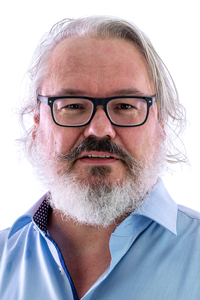University Medical Center (UMC) Mainz
Maria Felicia Basilicata Christian Behl Benedikt Berninger Luciana Berod Tobias Bopp Andreas Daiber Sven Danckwardt Carsten Deppermann Stephan Grabbe Thomas Hofmann Thomas Kindler Daniela Kramer Daniela Krause Dilja Krueger-Burg Michael Kühn Beat Lutz Johannes Mayer Wolfram Ruf Katrin Schäfer Susann Schweiger Natalia Soshnikova Tim Sparwasser Oliver Tüscher Sara Vieira-Silva Ari Waisman Philipp Wild Jennifer Winter Fatemeh Zare-ShahnehPhysiological and induced neurogenesis in the adult and ageing brain

For most parts of the brain, neurogenesis ceases forever with the closure of embryonic development. In the adult brain only two regions, i.e., the adult dentate gyrus of the hippocampus and the subventricular zone lining the lateral ventricle, maintain neural stem cell activity throughout life. We want to know why this is so, and what could be done to overcome these severe limits to plasticity and repair in other brain regions. Thus, on one hand we study the regulation of adult neural stem cell activity in both neurogenic niches and how newly generated neurons integrate into pre-existing neural circuits. On the other hand we explore the possibility of inducing the generation of new neurons in brain regions classically devoid of physiological neurogenesis.
To this end, we utilise neurogenic transcription factors such as the proneural genes Ascl1 and Neurog2 to induce brain astrocytes and oligodendrocyte precursor cells to undergo cell fate conversion into neurons. We aim at deciphering the molecular mechanisms driving this transcription factor-mediated lineage reprogramming, and try to utilize this knowledge to steer cell fate conversion towards the generation of clinically relevant subtypes of neurons. We study glia-to-neuron lineage reprogramming both in vitro and in vivo using single cell transcriptomics, live cell imaging and electrophysiology.
Positions held
- Since 2018: Professor, Institute of Psychiatry, Psychology & Neuroscience, Centre of Developmental Neurobiology, King's College London
- Since 2012: Professor, University Medical Center (UMC), Mainz
- 2011 - 2012: Senior Lecturer in Physiology, Department of Physiological Genomics, Ludwig Maximilian University, Munich
- 2005: Lecturer in Physiology, Department of Physiological Genomics, Ludwig Maximilian University, Munich
- 2003 - 2005: Senior Research Associate at the Institute of Stem Cell Research, Helmholtz Zentrum Munich
- 2000 - 2003: Group leader at the Department of Neuroimmunology, MPI of Neurobiology
Education
- 2011: Habilitation and venia legendi, Faculty of Medicine (Physiology), Ludwig Maximilian University, Munich
- 1993 - 1996: PhD with Dr. H. Thoenen, MPI of Psychiatry (now Neurobiology), Martinsried/Munich
- 1992: Diploma in Biology, Ludwig Maximilian University, Munich
Selected publications by Benedikt Berninger
Fan W, Jurado-Arjona J#, Alanis-Lobato G, Péron S, Berger C, Andrade-Navarro M, Falk S and Berninger B# (2023) The transcriptional co-activator Yap1 promotes adult hippocampal neural stem cell activation. EMBO J, e110384 (#indicates joint correspondence) Link
Lentini C, d'Orange M, Marichal N, Trottmann MM, Vignoles R, Foucault L, Verrier C, Massera C, Raineteau O, Conzelmann KK, Rival-Gervier S, Depaulis A, Berninger B and Heinrich C (2021) Reprogramming reactive glia into interneurons reduces chronic seizure activity in a mouse model of mesial temporal lobe epilepsy. Cell Stem Cell, 28:2104-2121 Link
Kalamakis G, Brüne D, Ravichandran S, Bolz J, Fan W, Ziebell F, Stiehl T, Catalá-Martinez F, Kupke J, Zhao S, Llorens-Bobadilla E, Bauer K, Limpert S, Berger B, Christen U, Schmezer P, Mallm JP, Berninger B, Anders S, Del Sol A, Marciniak-Czochra A and Martin-Villalba A (2019) Quiescence modulates stem cell maintenance and regenerative capacity in the aging brain. Cell, 176:1407-1419.e14 Link
Tiwari N, Pataskar A, Péron S, Thakurela S, Sahu SK, Figueres-Oñate M, Marichal N, López-Mascaraque L, Tiwari VK* and Berninger B* (2018) Stage-specific transcription factors drive astrogliogenesis by remodeling gene regulatory landscapes. Cell Stem Cell, 23:557-571.e8 [*indicates equal contribution] Link
Karow M*, Camp JG, Falk S, Gerber T, Pataskar A, Gac-Santel M, Kageyama J, Brazovskaja A, Garding A, Fan W, Riedemann T, Casamassa A, Smiyakin A, Schichor C, Götz M, Tiwari VK, Treutlein B* and Berninger B* (2018) Direct pericyte-to-neuron reprogramming via unfolding of a neural stem cell-like program. Nat Neurosci, 21:932-940 [*indicates equal contribution] Link